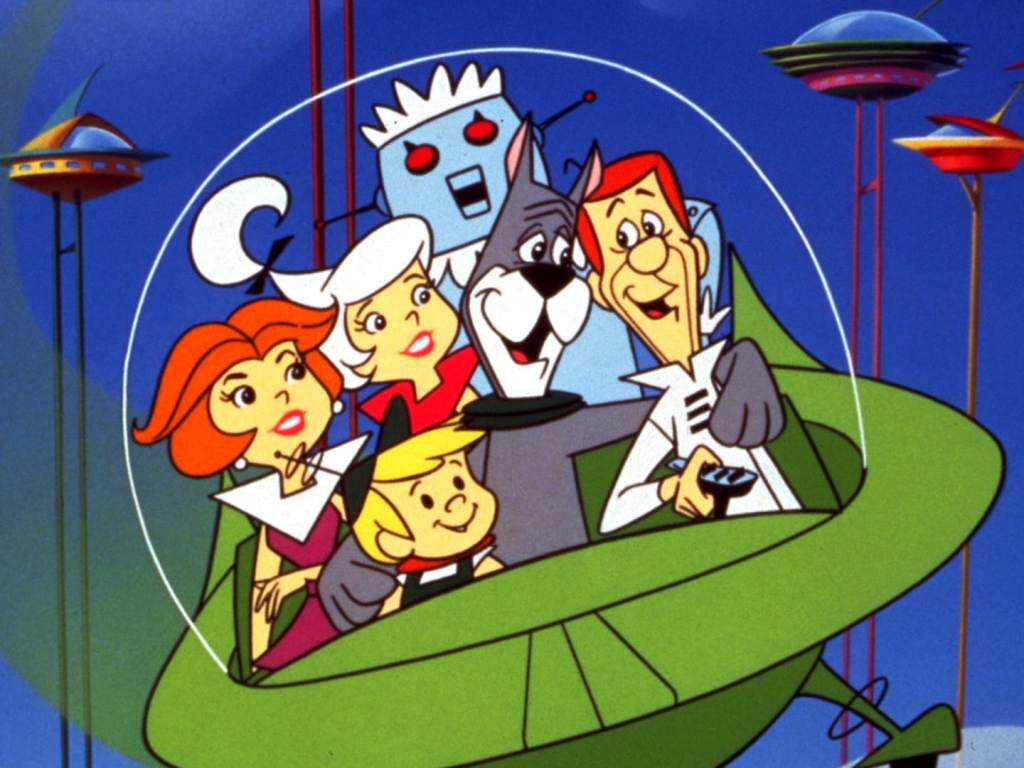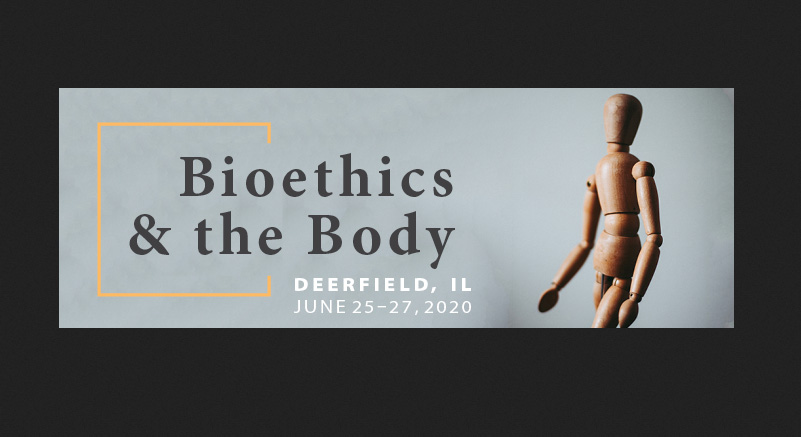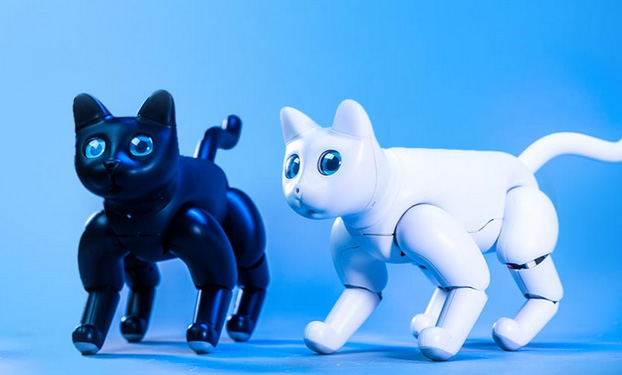There are many dreams of Utopia. We look around us and want to live in a better place. The Jetsons is a technological utopia, created in 1962 by William Hanna and Joseph Barbera of the famous Hanna-Barbera Productions animation studio. The show ran for two season (1962, 1963). It was extremely popular in syndication. The show was resurrected for a third season (1987-1988) as part of The Futuristic World of Hanna-Barbera series. The Jetsons is an upbeat animated family sitcom that is Hanna-Barbera’s space age version of The Flintstones.
THE UTOPIA
The appeal of The Jetsons was that they lived in a Future World. The Jetson family have all the tecno toys of 1950’s science fiction: flying cars, personal robots, high tech work stations, and everyone’s dream, a house that cleans itself. Watching The Jetsons on Saturday morning cartoons as child shaped my expectations of what the world would be when I grew up.
And I must say, advances in technology have done a pretty good job of achieving a lot of it. We have cell phones and personal computers. We have robots for a huge variety of tasks, and personal service robots are gain popular acceptance. We have robo pets. Medicine has become techno-magic regarding how we treat the human body. And God-bless the inventor of the microwave oven, because food does actually pretty much cook itself. Pop it out of the freezer, pop it in the microwave, and a beep tells you its done. Of course, someone somewhere had to prepare that meal originally, but today most of that was done by a robotic machine too.
OUR CURRENT DYSTOPIA
One of the idealizations that has not come true from the show is technology solving all the major social ills. In the world of The Jetsons, there is very little crime and no poverty. Sickness and disease have been reduced to minor inconveniences. There is still some remnants of human nature shown in the show. Much of the situational conflicts for the weekly shows revolve around the stresses in George Jetson’s job. His boss is unreasonable, his company has a major rival that keeps trying to steal their ideas, and his job is always on the line. He could be fired at any time, and this keeps George (an easy-going, pleasant guy) in a constant state of anxiety.
We are on the edge of 2020, the magic year for Utopia in many science fiction novels. Yet we still have not obliterated poverty. There are many diseases that simply evolve beyond whatever medical cure was developed for them. Major crime has actually increased with technology as technology has increased the range of personal scope for those with evil intent. And sadly, housing in major cities only resembles The Jetsons for the uber rich. Most of us continue to live in tiny, poorly built apartments. If anything, the size of the average apartment has continued to shrink in the last several decades while the cost for renting them has soared. And home ownership is not something done in the city any more.
Overall
Watching The Jetsons is still good fun. I find it hilarious that even in the sophistication of the Future World, one would still have to go out and walk your dog. This is why I have a rabbit. I laugh at my neighbors as they trudge out in Vancouver’s pouring winter rain while I sit warmly in my living room. Of course, even today, people still opt out for that reason and get a robo pet instead. I, however, do not think cold metal even remotely replaces a warm cuddle. Thus overall I think The Jetsons presents a future to hope for and work towards, while presenting a good perspective on the need for some things to remain the same.






